By Kevin Hsu and Evelyn Porter, with special thanks to Julie Kniseley
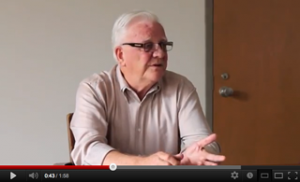
Professor Dr Sheldon Ekland-Olson shared his stories and lessons with students and colleagues today on the journey to becoming a sociologist, a scholar, a teacher, and a truly resilient human being.
Dr Ekland-Olson is the Audre and Bernard Rapoport Centennial Professor and Graduate Advisor of Sociology, and Director of the School of Human Ecology at UT-Austin. Former Executive Vice President and Provost of the University and former Dean at the College of Liberal Arts, Dr Ekland-Olson is the recipient of numerous honors such as the Texas Blazers Faculty Excellence Award and, most recently, the Regents’ Outstanding Teaching Award. He joined the faculty of the University in 1971 after earning his PhD in Sociology and Law from the University of Washington and Yale Law School.
Dr Ekland-Olson’s latest book Who Lives, Who Dies, Who Decides? (Routledge, 2011), based on his award-winning and hugely popular undergraduate course at UT, explores controversial issues such as abortion, neonatal care, assisted dying, and capital punishment, and the fundamentally sociological processes that underlie the quest for morality and justice in human societies.
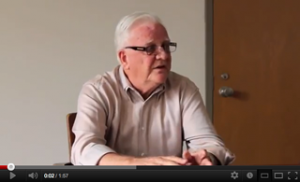
In this talk Dr Ekland-Olson (or Sheldon, as his colleagues and students affectionately and most often call him) emphasized the importance of discovering and being self-aware about one’s core values and goals, of ‘knowing thyself,’ and staying true to oneself under various circumstances. Sheldon’s own personal and professional course has taken a number of unexpected turns, but at each juncture he asked himself whether his choices and actions truly reflected what he wanted to do and felt was right, and this has been his guiding principle to this day.
Against the backdrop of the American civil rights movement, Sheldon attended college in Seattle, originally intent on obtaining a bachelor of science in chemistry. In the summer before his senior year, however, he was hired by an anthropology professor to transcribe interviews with an 85-year-old member of the Kwakiutl tribe in Canada about the effects of modernization on his community. Sheldon admitted to catching the ‘ethnography bug’ while transcribing Jimmy Seaweed’s interviews, and in his senior year changed his major and eventually graduated with a bachelor of arts degree.
In part because of his science background, Sheldon went to graduate school at the University of Washington to study social statistics, and five years later he graduated with a PhD in sociology. It was during this time he began to see the importance of law and the legal system in effecting social change, and he applied for and received a postdoctoral fellowship at Yale Law School.
Sheldon remembered loving the study of law, which for him was a fascinating subject in and of itself. Despite strong pressures from mentors and colleagues to go into a law career, he was more interested in the interplay and dynamics between law and culture – in particular the lives of prisoners, who are systematically stripped of civil rights, existing in a sort of gray legal ‘no-man’s land’. He undertook an ethnography of jail, spending nights studying and talking to prisoners awaiting trial about their unique perspectives and experiences, which led to the establishment of a pro bono legal counseling service provided by law students to prisoners in need.
In 1971 Sheldon joined the UT Sociology Department. Just before his tenure review, the publisher of his ethnography study went bankrupt, and mentors and colleagues tried to persuade him to pursue other courses of research and to publish in different venues. Nonetheless Sheldon stayed true to what he was interested in, thought was relevant and wanted to do, and was eventually able to publish his book and earn tenure at the University.
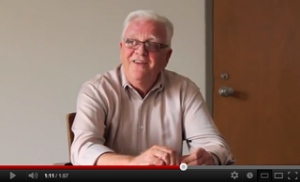
In the 1980s the Chancellor of The UT System was seeking to implement higher education development initiatives in the Rio Grande Valley, and wanted a ‘non-bureaucrat’ to oversee the process. Sheldon was appointed as special assistant on this task force. It was then Sheldon discovered his love of, and knack for, building programs from the ground up. Later, as Dean of the College of Liberal Arts, he would apply his vision and experience to the creation of programs such as Plan I Honors, the Undergraduate Writing Center, a Religious Studies program, Freshman Seminars, the interdisciplinary Tracking Cultures program, and numerous other initiatives at the University. Sheldon emphasized his journey is a continuous learning process and he ended up doing what he loves in completely un-anticipated and un-preconceived ways. It’s been important for him to remain true to his goals, and yet recognize there may be many paths to reaching them.
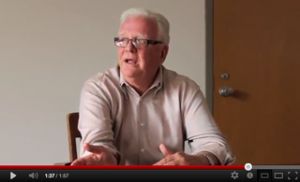
In the late 1980s Sheldon’s mother was dying from diabetes. The exorbitant cost of experimental drugs that could prolong her life for possibly six months forced Sheldon’s father, a janitor, to make the difficult choice to let her die. End-of-life and quality-of-life issues have since intimately engaged Sheldon as a teacher and a scholar, leading him to develop his undergraduate course ‘Life and Death Decisions’ and, eventually, write his book Who Lives, Who Dies, Who Decides?.
Sheldon’s current teaching and research involve the study of the evolution of moral systems, from the way people justify torture and capital punishment, to how science and technology influence our morality and ethics, and vice versa.
In sum, Sheldon offers the following life lessons for resilience:
- Be grateful for rejection and adversity, and learn to cope with them. It is through them we come to realize our source of strength and learn where our anchors are. (Hrabal: ‘For we are like olives: only when we are crushed do we yield what is best in us.’)
- Be grateful for successes, no matter how small they may seem.
- Recognize small steps matter. Don’t plan too far ahead. Be open to unexpected developments and bends in the road, in study and in life.
- Have humor.
- Be responsible and live for yourself.
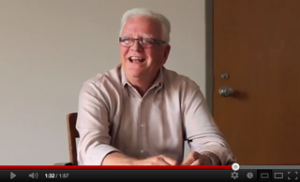
We are grateful Professor Sheldon Ekland-Olson has shared his stories with us, a testament to the adage that example isn’t another way to teach – it is the only way to teach. We are truly fortunate to have him here as a colleague, a mentor, and a friend.
Thanks, Sheldon!
